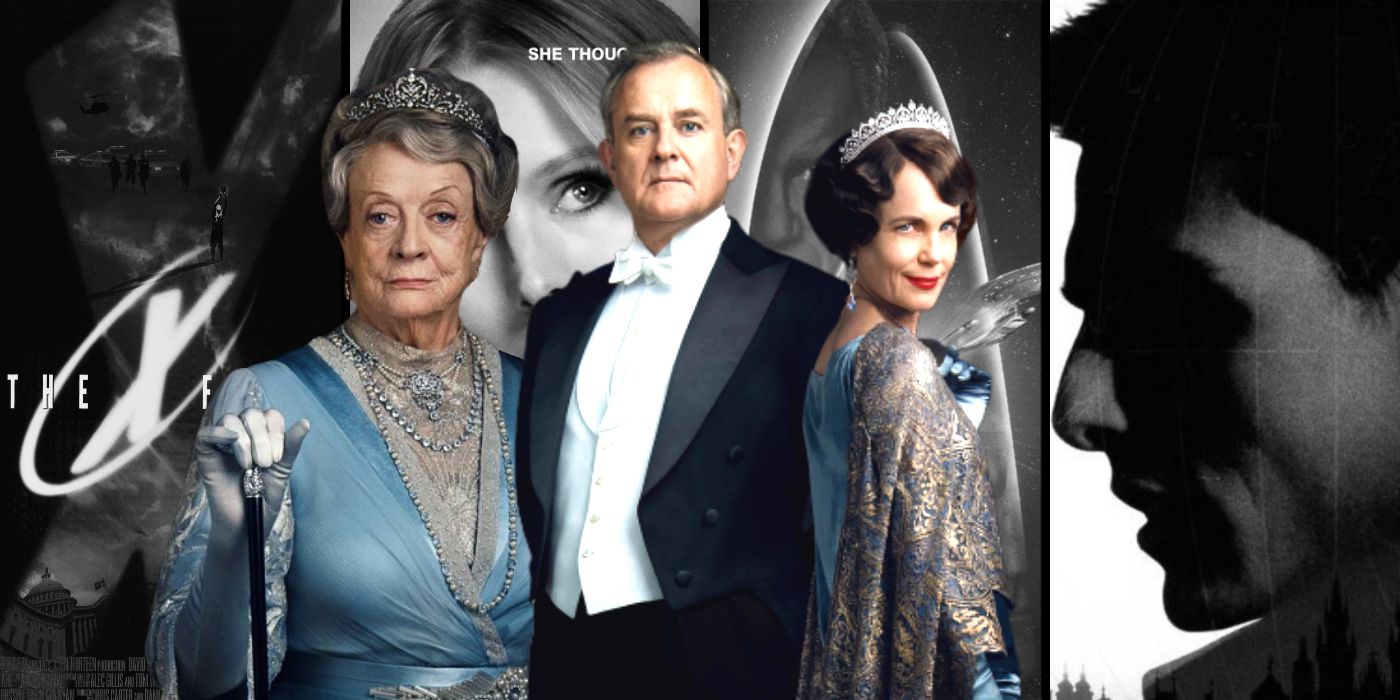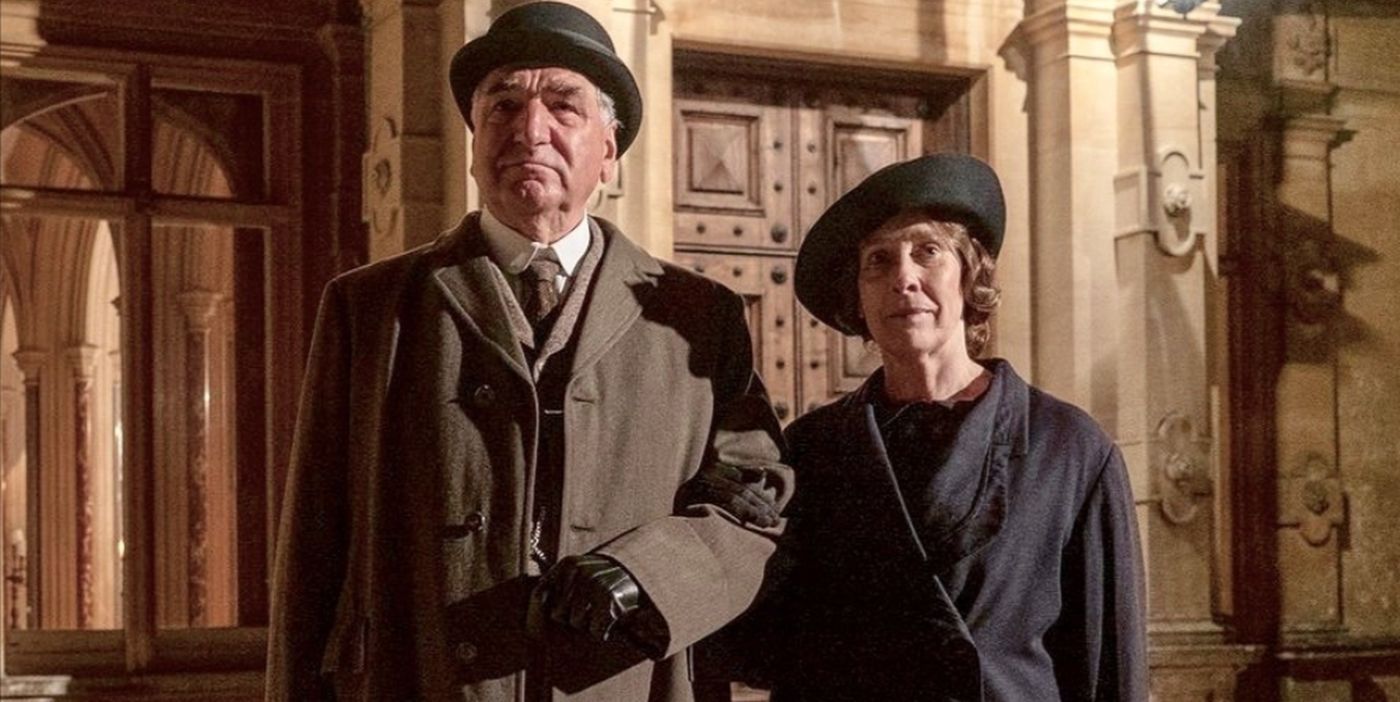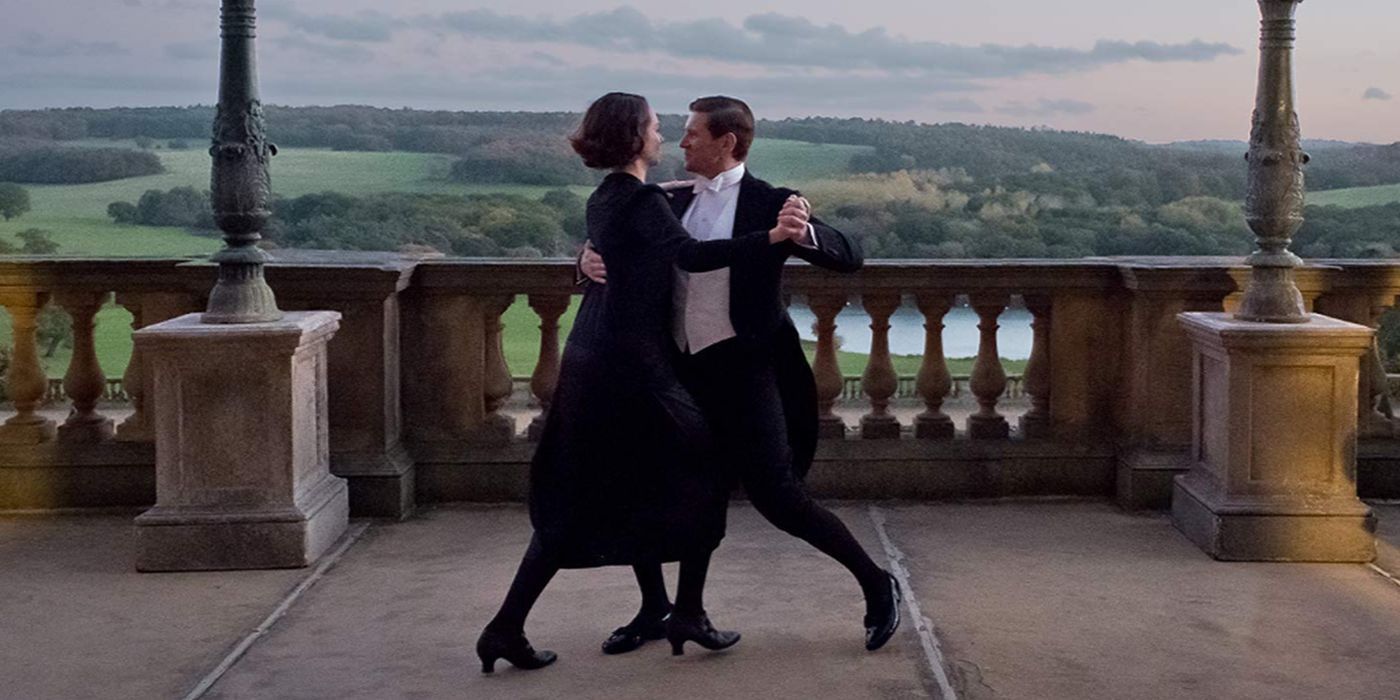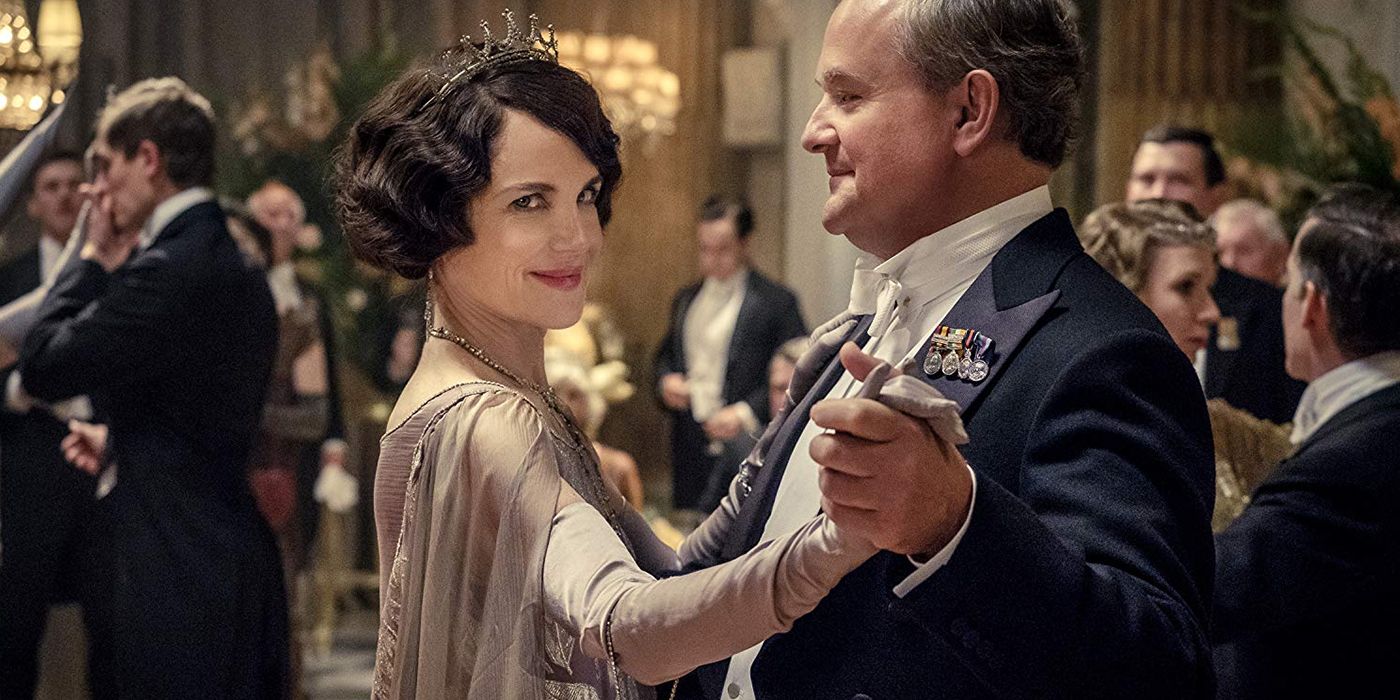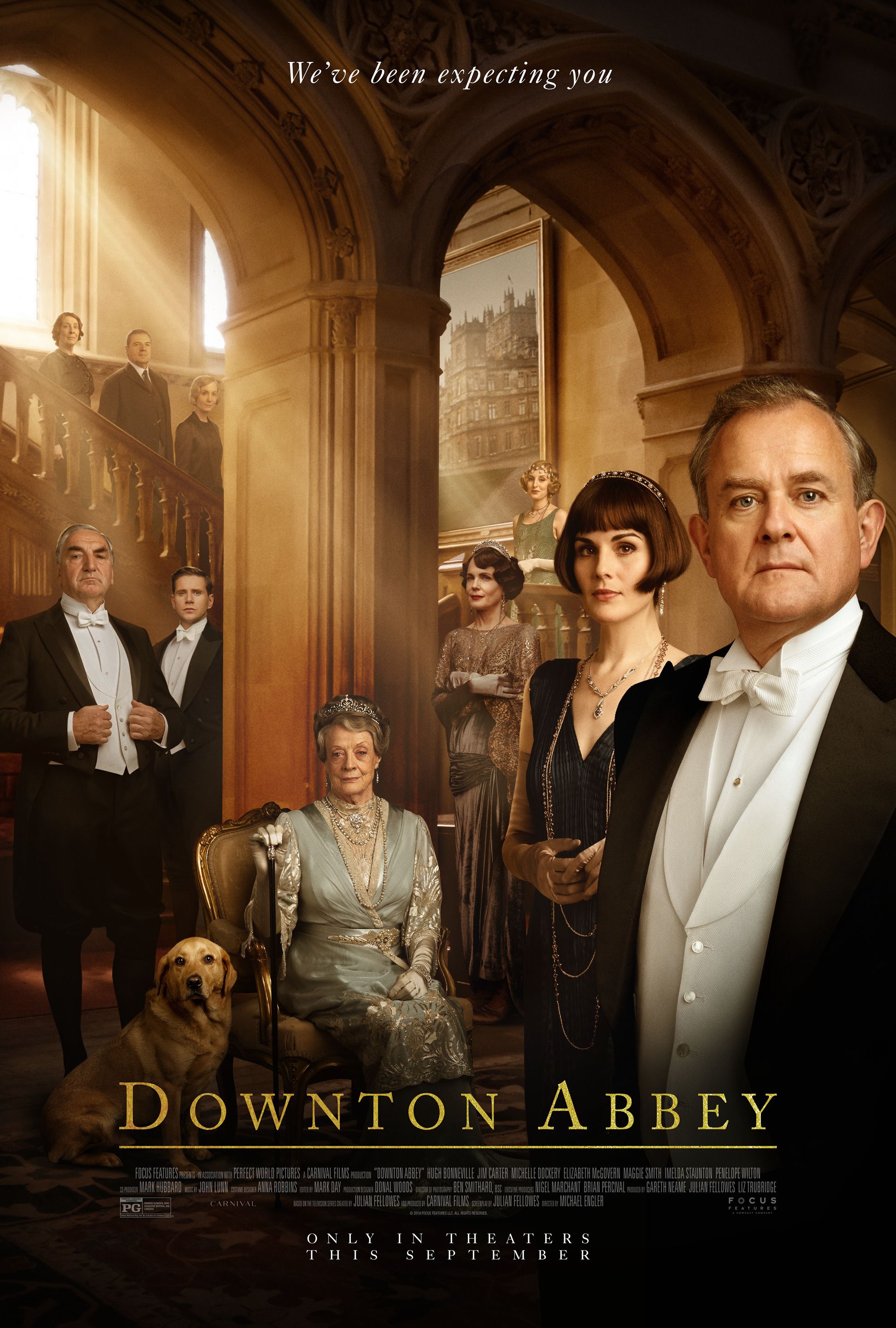Warning: Minor Spoilers For Downton Abbey.
The Downton Abbey movie was a critical and commercial success for a number of reasons - including the fact that it was better than other movies adapted from popular TV series. Written and produced by Julian Fellowes, the creator of the Emmy-winning TV series, the film, crucially, reunited the creative team behind the camera as well as most of Downton Abbey's cast, including Hugh Bonneville as Robert Crawley, the Earl of Grantham, Michelle Dockery as Lady Mary Talbot, Jim Carter as Charles Carson, and Maggie Smith as Violet Crawley, the Dowager Countess.
The film continues the story of the Downton Abbey TV show; picking up in 1927, about 18 months after the series finale, the plot centers around King George V (Simon Jones) and Queen Mary (Geraldine James) coming to stay at Downton, which requires the Crawley family and their loyal servants to unite and prepare their great house for their royal guests. Downton Abbey debuted at number one at the box office in the UK in September 2019, followed by a number one debut in the United States a week later. With a reported budget of $13 million, Downton Abbey's $31 million US debut exceeded expectations and the film earned over $100 million worldwide by the end of September. Downton Abbey is also Certified Fresh on Rotten Tomatoes; it has an 84% Critical score and a 95% Audience score. Impressively, Downton Abbey scored the highest opening ever in Focus Features' history, and it's also one of the best openings of a TV-to-movie adaptation outside of the Star Trek and Mission: Impossible franchises.
But the numbers don't tell the whole story of why Downton Abbey worked so well. Indeed, other popular TV series like Star Trek, The X-Files, and Veronica Mars have been turned into feature films, with mixed results. Wisely, Downton Abbey avoided many of the mistakes of its predecessors to deliver a critical success and a crowd-pleasing hit film. Here's how Julian Fellowes and his team accomplished it.
Downton Abbey's Movie Played It Safe - But In A Smart Way
Perhaps the most vital key to the Downton Abbey movie's success is that it delivered a film that was recognizably Downton Abbey in every way - exactly how fans like it. While the film could be criticized for essentially being a longer version of the Downton Abbey Christmas specials that closed out seasons 2 to 6, and it's also true that the movie wasn't designed to appeal to general audiences, this is exactly why it worked. Downton Abbey indulged everything fans adore about the TV series, right down to the unforgettable music by composer John Lunn, and the film succeeded by not reinventing the wheel or altering what the series was to cater to mass audiences. Rather, the Downton Abbey film was a perfect continuation of the TV series that rewarded fans in pleasing ways.
When other TV series jumped to the big screen, they often utilized stunts to make the film a 'special event'. For instance, Star Trek Generations not only had Captain Picard meet Captain Kirk, but the film killed off Kirk and destroyed the Starship Enterprise-D to boot. In addition, Commander Data installed his emotion chip so that the android behaved wildly out of character - and none of those stunts pleased hardcore Star Trek fans. In the 1998 X-Files movie, Fox Mulder (David Duchovny) finally saw an extraterrestrial ship at the end, but the events of the film ultimately had little impact on how the TV series wrapped up. The crowdfunded 2014 Veronica Mars movie was, sadly, a product of a tiny budget and had to be limited in its scope. Mission: Impossible completely reinvented the movies to be about Tom Cruise's Ethan Hunt to huge success, but the sequels are unrecognizable from the original TV series. For its part, Downton Abbey brilliantly avoided all of those pitfalls.
Downton Abbey may have played it safe, but it did so cleverly. The film reunited the TV series' creative team as well as the entire cast (with the exceptions of Lily James and Samantha Bond), kept the setting of Highclere Castle that Downton Abbey fans adore, and made wise casting decisions for its guest stars - seeing Maggie Smith (who played Professor Minerva McGonagall) square off against Imelda Staunton (who played Delores Umbridge) was an extra treat for Harry Potter fans. Most importantly, Downton Abbey did not utilize any unnecessary stunts to make the film 'memorable' or 'cinematic': there was no fire that destroyed the great house, there were no shocking deaths or overblown soap opera elements that the TV series occasionally overutilized, and Maggie Smith's exit from Downton Abbey where Violet passed the torch to Lady Mary was handled tastefully and with heartfelt grace.
Downton Abbey's Movie Was The Right Kind of Fan Service
The Downton Abbey movie certainly indulged in fan service but it was in all the proper ways, right down to Lady Violet delivering plenty of her signature, razor-sharp quips. Though the TV series wrapped up by giving most of the characters a happy ending, Julian Fellowes found some brilliant ways to pick up the story and create new potential for happiness for some of the other characters. First and foremost, Tom Branson emerged as the shining knight of Downton Abbey; not only did the Irish Republican heroically save the King's life (and was acknowledged for it by His Majesty) but he also, at long last, got a worthy love interest in Lucy Smith (Tuppance Middleton). If that's not enough, Tom could become wealthy if he marries Lucy in a Downton Abbey movie sequel, which would complete his stunning character arc from his humble beginnings as the chauffeur who fell in love with the late Lady Sybil (Jessica Brown-Findlay).
While a few major characters like Lord Grantham and Cora Crawley, the Countess of Grantham (Elizabeth McGovern) ended up playing supporting roles, the Downton Abbey movie shined by spotlighting the ingenious Anna Bates (Joanne Froggatt), who masterminded the servants' rebellion along with her husband John Bates (Brendan Coyle), and by giving Daisy (Sophie McShera) lovely moments where she continued her growth towards independence and chose to finally set a date for her wedding to Andy the footman (Michael C. Fox). Meanwhile, Thomas Barrow (Robert James-Collier), who was the longtime seething villain among the servants, has not only evolved but, as a closeted gay man, Barrow was finally given a glimpse of happiness when he learned their are ways he can freely express his sexuality thanks to his new love interest Richard Ellis, the King's Valet (Max Brown).
All of these exquisite character beats occurred during familiar moments reminiscent of the Downton Abbey TV series: the stately dinners in the dining room, the bickering and chaos in the kitchens below, and the glorious occasions like the climactic Royal Ball at Harewood Castle. Further, by having Lady Mary question whether Downton should still exist and re-embrace her commitment to keeping her great house going, the Downton Abbey movie assured fans that Downton will always be there to escape to whenever they need it because the house - like the film - is in good hands, as they have always been.
Downton Abbey Not Only Counter Programmed Other Movies But Also The Real World
Older audiences turning out in droves was the key to the Downton Abbey movie's box office success. The film served as an effective counter-programming that catered to moviegoers who are increasingly alienated by Hollywood's proliferation of comic book movies, horror films, and Disney live-action remakes. Indeed, in its opening weekend, Downton Abbey outperformed the brooding sci-fi film Ad Astra and the violent Rambo: Last Bood. To its credit, Downton Abbey's producers knew exactly who their core audience is; the film successfully zeroed in on a demographic starved for entertainment aimed at them and they certainly hit the mark. Further, Downton Abbey's shimmering fantasy of an elegant bygone era turned out to be the perfect counter-programming to the real world because whether you live in the UK, the United States, or any other place in the world, reality feels frightening with political unrest and numerous problems at home and abroad.
For fans, the Downton Abbey movie proved to be an ideal refuge from real life and its troubles. The film is pure escapism into 90 years in the past where fans get to reunite with beloved characters who are doing quite well; Lord and Lady Grantham are happy as ever, the Dowager Countess remains hilariously witty, and even the sisters Lady Mary and her eternal rival, Edith, the Marchioness of Hexam (Laura Carmichael), are getting along! What's more, the servants remain loyal to the Crawleys and are finding happiness where they can, as well. The King and Queen even turn out to be jolly and good-natured. This kind of welc0me reassurance that Downton Abbey hasn't changed - nor will it - is the final masterstroke that makes the Downton Abbey movie so successful and why it's a breed apart from other TV shows adapted into movies.

